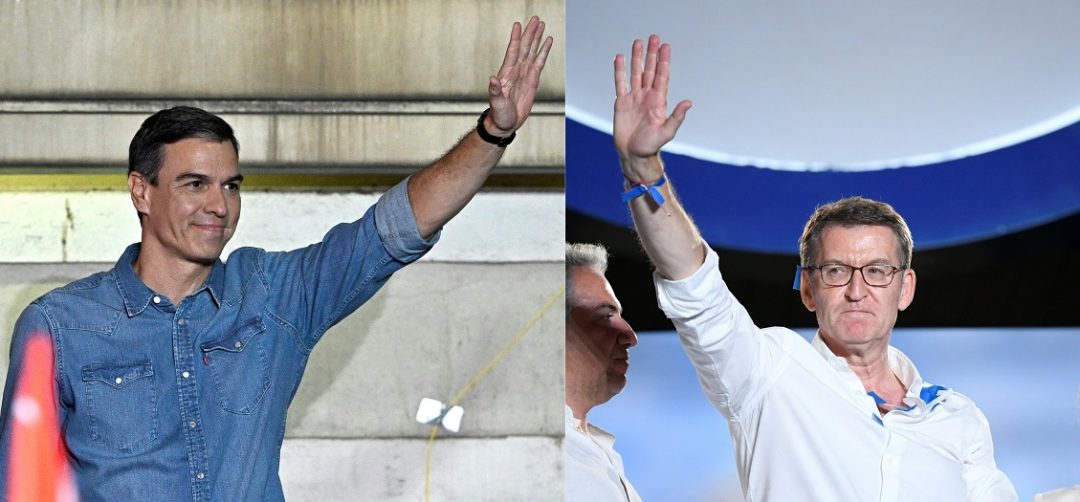“Both the right and the left have a very tenuous, and hazardous, path to a majority, and neither is very likely to succeed,” said Federico Santi, analyst at political risk consultancy Eurasia Group.
Addressing a crowd of euphoric activists shouting “No pasaran!” — the famous anti-fascist slogan of Spain’s 1936-1939 civil war, meaning “They shall not pass!” — Sanchez was jubilant.
“The backwards-looking bloc that wanted to roll back all the progress we made over the past four years has failed,” said Sanchez, who focused his campaign on the danger of a PP-Vox government.
Feijoo, who narrowly won the election on paper, has insisted he is entitled to form a government.
“As the candidate of the most-voted party, I believe it’s my duty… to try to govern our country,” he told supporters after the results came in.
Sanchez, 51, called the snap polls in late May after his Socialist party and its far-left junior coalition partners suffered a drubbing in local and regional elections in which the right surged.
He focused his campaign on warning about the danger of a PP-Vox government to mobilize the electorate in a strategy that appears to have paid off, with turnout reaching almost 70 percent, some 3.5 percentage points higher than in 2019.
The vote has been closely watched from abroad over the possibility, which now seems unlikely, of a government in which the far right held its first share of power since the Franco dictatorship ended in 1975.
Vox, which jointly rules three of Spain’s 17 regions with the PP, pledged to roll back laws on gender violence, LGBTQ rights, abortion and euthanasia, as well as a democratic memory law honoring the victims of the dictatorship.
Lyne Sammouri, with AFP





